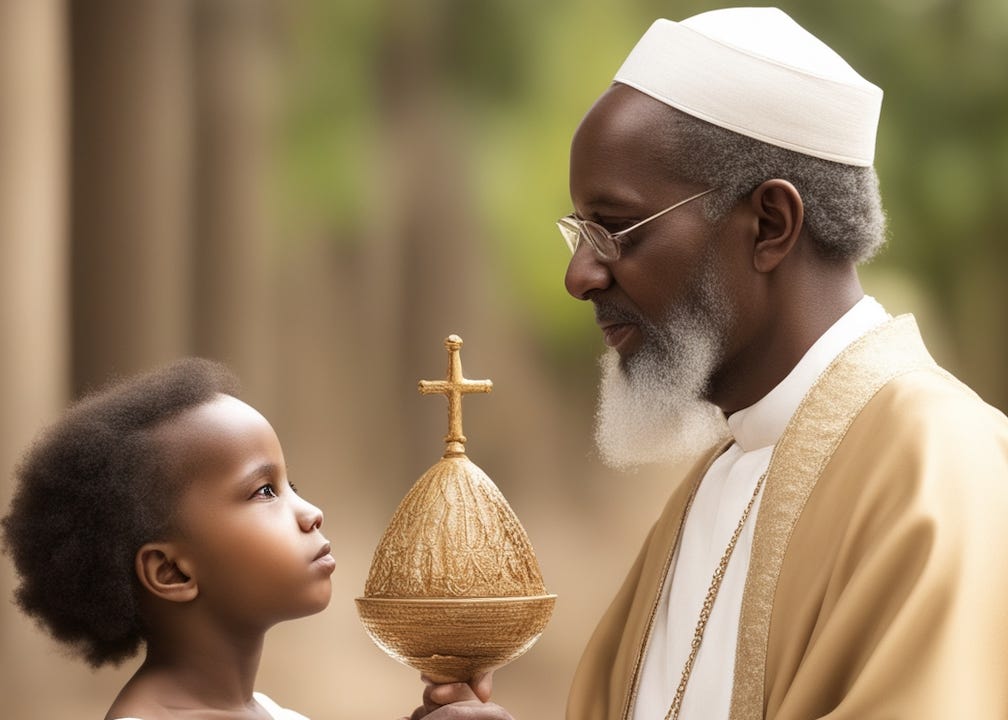Maturation Changes Faith: Christianity and Human Development
Part 1 in a four-part series on how faith changes throughout life: James W. Fowler researched the relationship between human development and stages of faith.
Human social organization has developed continually throughout the existence of our species, and individual human beings develop continually throughout their lifetimes. There are parallels between the long arc of collective human development and the short arc of individual human development.
The average level of collective identity has moved from clans, to tribes, to tribal coalitions, to city-states, to civilizations and monarchies, to nation-states, from authoritarian to more self-governing modes of power relation (and back again), to federations, to global concepts of human society. Moreover, collective political entities have continually dissolved and re-formed over time as their complexity has slowly increased. Our conscious identification with human collectives has more or less expanded with these developments.
In the same way, individuals experience an expansion in their world and their relationship to it over the cycle of individual human development. Early on, an infant learns to distinguish between itself, its physical environment, and the various objects within that environment. Through childhood and adolescence, a person develops a growing sense of self and individual agency as distinct from others.
The focus of association moves from those on whom it immediately depends for nurture, to others in the family, to social groups with whom the family identifies, to those in groups initially seen as ‘other’, to societies that contain diverse social groups, and so on. If a person is relatively fortunate, the strong establishment and functioning of a mature individual self can be followed by a growing awareness and recognition of connectedness with—non-separateness from—other individuals and groups across humanity and other forms of life across the biome. This relates to theological concepts concerning creation, the symbolism of a unitary Creator, our place relative to them, and the definition of who constitutes one’s neighbors.
Collectively-held concepts of God and our human responses to them have also developed over time, as seen embedded in the Hebrew Jewish and Greek Christian scriptures, and in the historical development of Christianity over two millennia. This has occurred more or less in conjunction with overall collective human social development. And in the same way, individually-held concepts of God and personal responses to them mature within the scope of human development over an individual lifecycle.
It is important to note that a more complex form of societal development does not supersede a less complex one. A given level of individual development does not replace the previous one. One stage of religious development does not displace a less mature stage; rather, all levels of development are nested into one another. All stages up to a given point of development are present at once. When people develop in healthy ways, they can reintegrate the truth found within stages they have transcended, in light of an ever more complex grasp of reality. When a society or an individual is stressed, there is often an impulse to regress to a less mature stage of development, if not an actual regression.
Check out the ARCHIVE of Faith Shifter posts.
James W. Fowler (1940–2015) was a theologian, ethicist, and developmental psychologist at Emory University. He conducted groundbreaking research in the psychology of religion, interviewing or drawing on interviews with nearly 600 subjects. His book, Stages of Faith: The Psychology of Human Development and the Quest for Meaning (1981), draws on a wide range of scholarly literature and firsthand research to present six stages that emerge as we human beings work out the meanings of our lives. Fowler’s work builds on the pioneering foundations laid by Swiss child development psychologist Jean Piaget (1896–1980), German-American developmental psychologist Erik Erikson (1902–94), and American developmental psychologist Lawrence Kohlberg (1927–87), who was Fowler’s contemporary and associate, known for his work in the psychology of moral development.
Fowler interviewed people from various traditions—both religious individuals and those who were not religious, including avowed atheists. It is important to note that for purposes of his research, Fowler defined faith not necessarily as religious or equated with religion, but rather as any person’s way of leaning into and making sense of life. Faith, as a dynamic system of images, values, and commitments that guides one’s life, is fundamental to everyone who continues to live. For religious people, including Christians, that system certainly includes those images, values, and commitments that are related to religion.
Next week, Part 2 of this series, based on Fowler’s work, will focus on how the levels of psychological development we exhibit as children contribute to the ways we understand matters of religion and faith. Part 3, the week after, is about how levels of development we may or may not experience as adults change our understanding of such matters over time, especially if we experience higher cognitive and psychological development.






I look forward to what you have to say about faith development in the new few posts. The intro brought to mind the broad affirmation and horizon of understanding that I first encountered after discovering Fowler et. al. back in the late '80s.
Carry on, and "Hi" to Jenny.